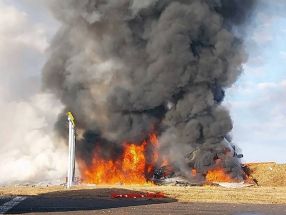Morales grudgingly accepts referendum defeat in Bolivia
LA PAZ — President Evo Morales grudgingly accepted on yesterday his first direct electoral defeat in a decade in power, the narrow rejection of a constitutional amendment that would have let him run again in 2019.
"We lost a democratic battle but not the war," he told a news conference. "Evo's work is not done." He blamed the loss on a "dirty war" by the opposition and an "external conspiracy."
Asked if the process of choosing a successor would begin in the governing party, Morales reminded the questioner that he still has four years left in office.
"It's not the moment to speak of a successor. There is a lot of time for that."
Previously, Morales had averaged 61.5 percent of the vote in electoral wins, including a 2009 constitutional rewrite. But corruption scandals, a weakening economy and the growing unpopularity of his movement stung this time.
After the outcome became clear Tuesday night, celebrants poured into the streets in the eastern city of Santa Cruz, where opposition to Morales is strong. But fireworks also sounded in La Paz, where there is weariness of official corruption.
Sunday's ballot question lost by 51 percent to 49 percent. The outcome also blocks Vice President Alvaro Garcia from running again.
A native Aymara, Morales is Bolivia's first indigenous president and changed the ethnic complexion of the landlocked nation's politics in three terms in office.
He helped lift millions from of poverty by more equitably distributing natural gas revenues, spurring the creation of an indigenous middle class. He built airports, highways and the pride of La Paz, an Austrian-built aerial tramway system. He also put a Chinese-built satellite into space
But Bolivians have been losing patience with his now-entrenched Movement Toward Socialism. And many natives initially enamored of Morales for granting them autonomy on paper lost faith when he pushed natural gas and oil projects on their lands.
The referendum also closely followed a revelation that Morales, previously unscathed by scandal, may have been personally involved in influence-peddling.
While the setback was yet another blow to South America's populist left — which last year lost Argentina's presidency and saw the opposition win control of Venezuela's parliament — it did not signify a right turn in Bolivia.
"Evo's traditional opposition among the affluent and middle class was joined by a wide swath of voters who have long been a part of his political support," said Jim Shultz, director of the left-leaning Democracy Center advocacy group.
"Their turnaround isn't about moving rightward," but rather a rejection of corruption and an assertion that "20 years is too long for one person to be president," he added.
Jose Luis Choque, a 24-year-old accounting student, said Morales has been duly warned.
"I think that if he wants to finish his term in peace he should understand that he needs to return to who he was when he became president, when he had ideals and was dear to the people for them and made us feel proud," he said.
Early in his presidency, Morales crushed the right-wing opposition by championing Bolivia's long-downtrodden native majority. He expelled the DEA and a US ambassador, thriving on anti-Yankee rhetoric. The coca-growers union leader also upset Washington drug warriors with a less violent coca-eradication program in the world's No. 3 producer of cocaine.
But formidable opposition eventually emerged from inside his movement and it stung in March 2015 municipal and regional elections, when opposition mayors won in eight of Bolivia's 10 biggest cities.
Political scientist Marcelo Silva of the Universidad Mayor de San Andres said infighting in the governing party over a successor could now weaken it even further.
An unprecedented economic boom in which gross domestic product per capita rose by nearly a third during Morales' rule has now waned. Bolivia's revenues from natural gas and minerals, making up three-fourths of its exports, were down 32 percent last year.
The vote's timing could not have been worse for Morales.
An influence-peddling scandal that broke this month cost him dearly.
A former girlfriend nearly half Morales' 56 years was named sales manager of a Chinese company in 2013 that has obtained nearly $500 million in mostly no-bid state contracts. Photos of her neoclassical mansion in a wealthy southern La Paz enclave spread online.
Morales denied any impropriety and claimed he last saw the woman in 2007. But a picture of the two together last year emerged, casting doubts.
The most harmful scandal plaguing the ruling elite was the skimming of millions from the government-managed Fondo Indigena, which runs agricultural and public works in the countryside.
Judicial corruption has also been rampant, and freedom of expression suffered under Morales, with critical media and environmentalists complaining of harassment by an overbearing state.
As Morales left the presidential palace on yesterday, a small group of people booed him, shouting "Bolivia said 'No!"
Minutes later, another group showed up to confront it, shouting, "Bolivia said Yes!"
Police separated the two groups.
- Latest
- Trending
































